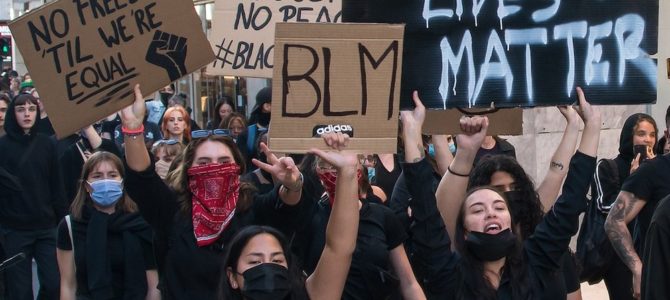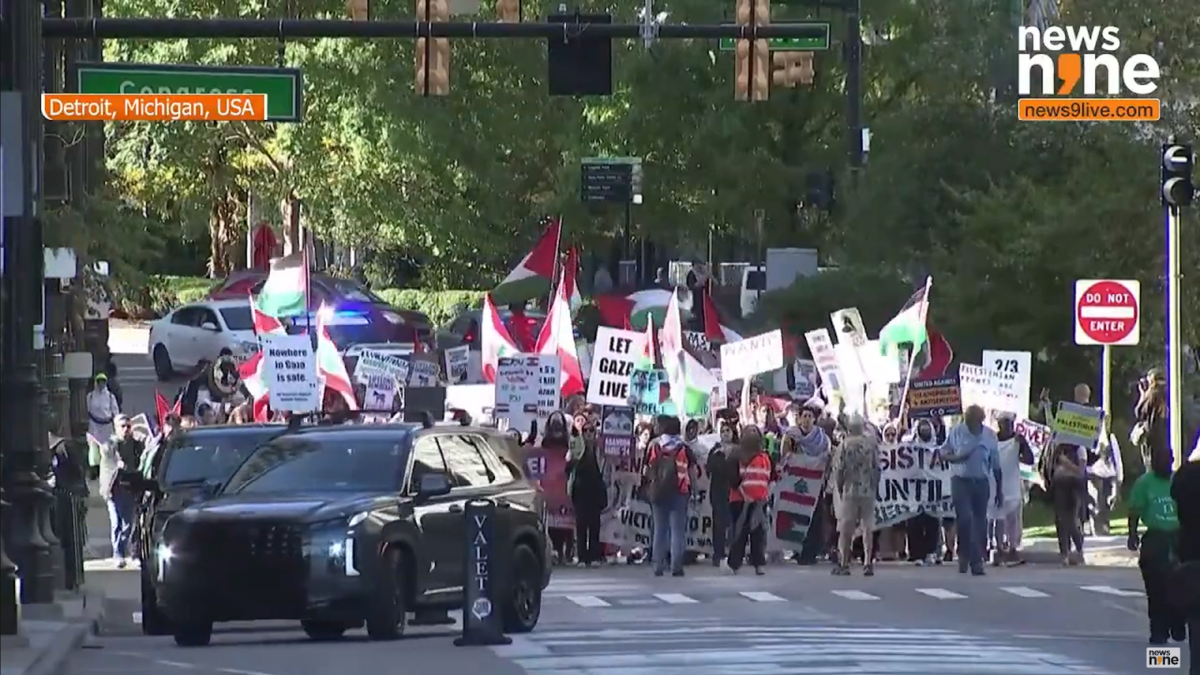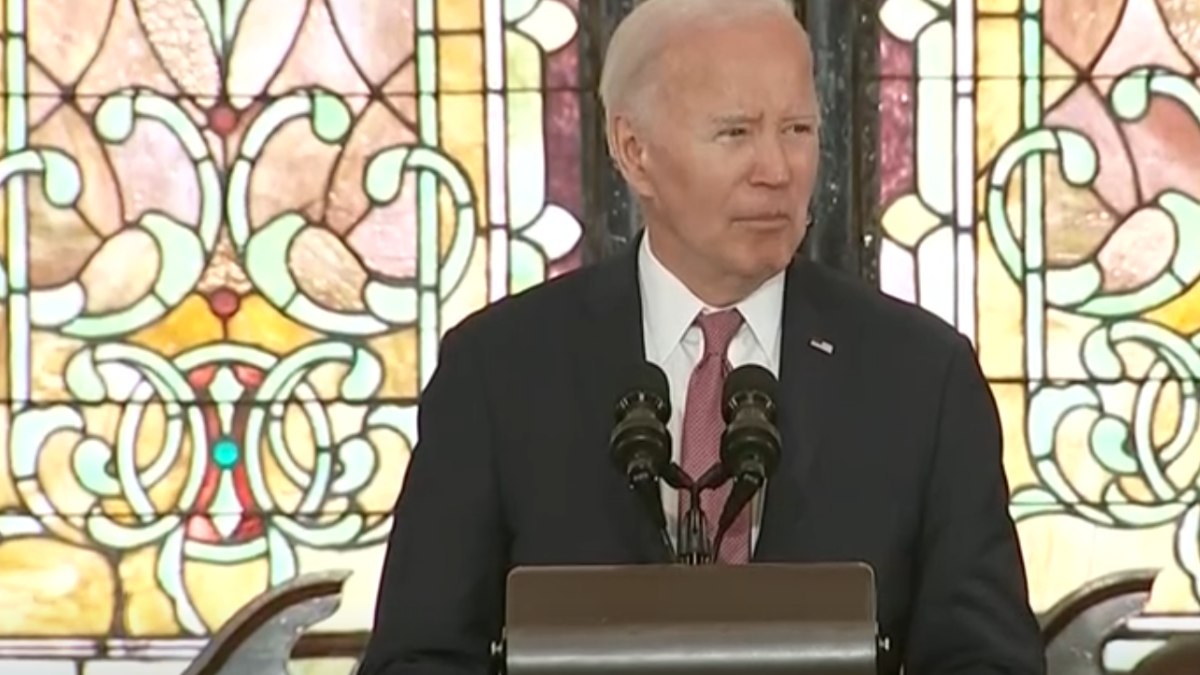
There will be no opting out of the Black Lives Matter movement. You’re either for BLM or against it—and if you’re against it, you’re a racist. You will either support BLM publicly and enthusiastically, or you will be harassed, shunned, and shamed out of mainstream America. If you dare to speak a word against BLM, you will be targeted, mobbed, and probably fired.
That’s the message coming through loud and clear, not just from protesters but from corporations and institutions desperate to seem woke enough to escape the wrath of the BLM movement.
It doesn’t matter what your job or profession might be. It doesn’t matter if you’re in a position of power or prestige—in fact being in a position of power might make you more of a target. The only thing that can protect you from the BLM movement’s punitive rage is fealty. Bend the knee, and you might be spared. Then again, you might not.
The list of people who have lost their jobs or been suspended for criticizing or even questioning the BLM movement is long—and growing daily. Most prominent on the list is erstwhile New York Times opinion page editor James Bennet, who “resigned” under pressure from woke NYT staffers after he ran an op-ed by Republican Sen. Tom Cotton that made the uncontroversial case that the U.S. military should be deployed if police can’t get riots under control.
Then there was Stan Wischnowski, top editor at the Philadelphia Inquirer, forced to resign over a headline of an architecture column that read, “Buildings Matter, Too,” which ran after scores of buildings in downtown Philly had been destroyed by rioters.
Bon Appétit editor-in-chief Adam Rapoport stepped down Monday after a piece he published genuflecting to BLM was deemed insufficient by staffers who claim there’s a discriminatory culture at the magazine. Also, someone posted a 13-year-old photo of Rappaport in a Halloween costume that some people thought was offensive.
Claudia Eller, editor-in-chief at Variety, was forced to take administrative leave after she got into a Twitter spat with a woman of South Asian descent who thought a piece Eller wrote lamenting the lack of diversity at the magazine wasn’t obsequious enough.
On and on it goes. NBA announcer Grant Napear was fired from his sports talk radio program and resigned as the Sacramento Kings announcer after tweeting “all lives matter.” A professor at UCLA was placed on leave after refusing to cancel a final exam following the death of George Floyd. A reporter in Wales was forced to step down as Wales Book of the Year Judge after complaining that a BLM protest violated the government’s social distancing rules.
A cast member for MTV’s reality competition series “The Challenge” was fired after writing “people die every f–king day” in response to an Instagram comment about George Floyd. Professional soccer player Aleksander Katai was “released” by the LA Galaxy not for anything he wrote or said, but because his wife criticized BLM on Instagram. A former Canadian cabinet minister lost three jobs after saying on television that he didn’t think Canada was a racist country.
That’s just a partial list.
BLM Isn’t Interested In Free Speech, It Wants Power
Black Lives Matter as a political movement—as distinct from, say, thinking that black lives matter, which most Americans do because they aren’t racist—isn’t interested at all in ameliorating the state of black America, or fighting actual racism, or expanding liberty and justice for all under our constitutional system. This isn’t an evolutionary movement but a revolutionary one. It doesn’t draw on our tradition of constitutionalism but on Marxism. Its model isn’t the American Revolution but the French Revolution—hence the purges, which for now are confined to the workplace.
It’s fair to say the movement’s power and influence are based on ideological purges. Exposing supposed racists is its modus operandi, and what began on campus has now percolated through into the mainstream of American life.
https://twitter.com/agavedelacalle/status/1269174574962204672
Apologies and counterarguments won’t help because the one thing the BLM movement cannot allow is honest discourse or the free exchange of ideas.
Consider the case of Harald Uhlig, an economics professor at the University of Chicago and lead editor of the Journal of Political Economy, one of the country’s top economics journals. A campaign is currently underway to get Uhlig fired for “trivializing the BLM movement” and then insufficiently apologizing for this supposed offense in a Twitter thread.
How did he trivialize the BLM movement? He wrote a blog post in 2017 defending the principle of free speech using the example of sympathetic media coverage of NFL players kneeling during the national anthem. Essentially, he posed a diagnostic question about the motivations of journalists. He did this in a somewhat clumsy but provocative way, asking whether these journalists would still defend the players if instead of kneeling during the anthem they waved a Confederate flag and donned Ku Klux Klan gear.
Uhlig’s point was that you’re only really defending the principle of free speech if you’re defending views you find despicable, like support for the Confederacy or the KKK. Since most journalists already agreed with the kneeling NFL players protesting police abuse, “this isn’t really an act of bravery,” he wrote. “This is all about defending the right to speak for those that you agree with in the first place, dressed up as a proud defense of the constitution. This is an act of a majority ganging up on one who is down. What a phony act of cowardice and pretense.”
Strong words, but certainly not “trivializing” the BLM movement or anyone who was protesting police abuse. In fact, Uhlig’s blog post has nothing to do with the protests or BLM as such. It’s a post about media coverage and the First Amendment. That much is obvious to anyone who reads what he wrote.
But no matter, the mob has come for the professor. An online petition, started by woke economists who think Uhlig’s comments “call into question his impartiality in assessing academic work on this and related topics,” demands his resignation as lead editor of the Journal of Political Economy. “We do not question the right of Prof. Uhlig to make such comments,” the petition states, “but we are strongly opposed to him holding a position of power as the editor of a prominent journal in our discipline.”
That is, you’re free to make such comments so long as you relinquish your job and “position of power” whenever the mob demands it.
This isn’t some fringe incident in academia, by the way. This is an effort to oust the editor of a top academic journal for defending the principle of free speech. Yet among the mob calling for Uhlig’s head are powerful people like Paul Krugman of the New York Times, who has been lobbing baseless smears at Uhlig for days now on Twitter, misrepresenting what he said and cheering on the people trying to get him fired.
The lesson in all of this is that the BLM movement is above all interested in power. It seeks to seize power in part by monopolizing the definition of racism and wielding accusations of racism against anyone who doesn’t fall in line with its radical policy agenda.
That means you’re a racist if you don’t support BLM—and even if you do, you might be deemed a racist anyway. And in that case, you’re fired.








